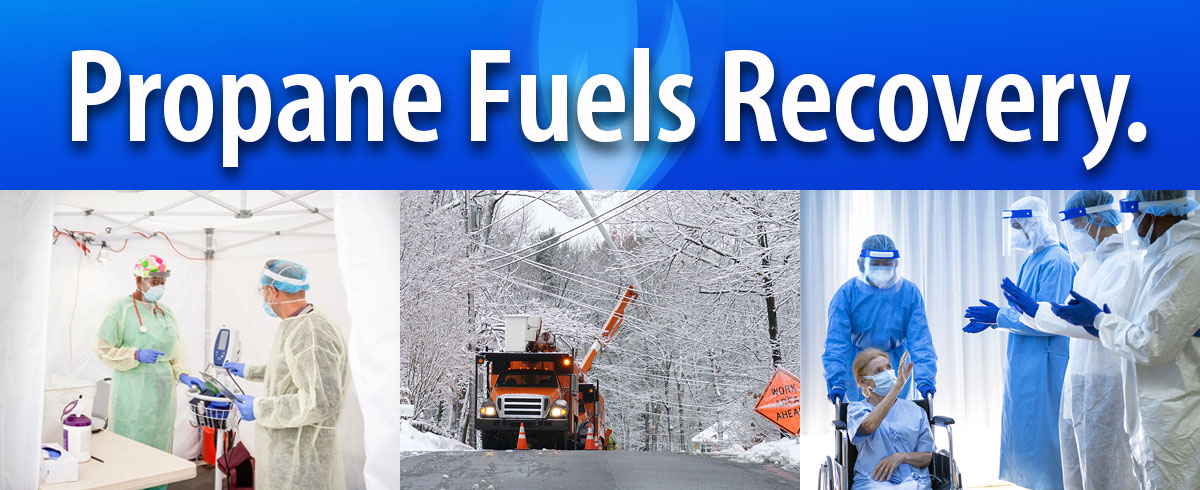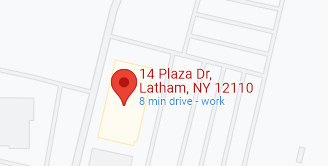Climate Bills Are Heating Up (Part II)

Below is the second half of our discussion about proposed climate bills and the place that propane should have within the clean energy environment with Leslie Anderson, President of the Propane Gas Association of New England (PGANE).
If you missed the first part of our interview, you can read it here.
Interview with Leslie Anderson (Part 2 of 2)
Heffron: Is our industry building regional, national, and international coalitions with AARP, the American Gas Association, the National Builders Association, the National Restaurant Association, World LPG Association (and other compatible associations)?
It seems that we have much more in common than apart.
Anderson: Yes, NPGA has taken the lead on the national level and here in New England. I frequently join forces with my counterparts at the New England Hearth Patio and BBQ Association, State Business Associations, and our local State Energy Marketer Associations where we are aligned.
Heffron: How has the pandemic affected your strategy?
Anderson: As an essential business, our industry has truly stepped up and gone above and beyond, just like they always do historically in times of crisis. This is an excerpt from a letter I sent to the Massachusetts legislators when they were debating climate bills earlier this month:
“There’s an essential part of the COVID-19 support system in New England that often goes unnoticed. It has been fueling hospitals, drive through testing, outdoor testing sites; and providing heat, hot water, and clean cooking energy to New Englanders during a cool spring season and on cool summer nights. A closer look behind the scenes of this crisis shows that propane is a fundamental necessity and a vital part of our daily needs.
For decades, propane has been a portable clean energy source for natural disaster response and winter storms. But this pandemic has reinforced how critical propane is to our ability to promptly respond to a crisis and quickly mobilize critical reliable clean energy to heat outdoor facilities.
Besides supplying warmth to the first responders and nurses working in these tents to conduct testing throughout New England, numerous outdoor tents that house temperature critical equipment have also been protected with reliable portable clean propane energy to help maintain this sensitive equipment so that tests can be performed and samples can be protected before they are tested.
Propane companies across New England have gone out of their way to support the local need for first responder tents, often responding the same day and setting up energy and heat for the tents at the same time the tents were going up. If you believe in recycling, composting, environmental justice, reducing carbon emissions, and keeping our citizens in America and around the world healthy, you should be promoting propane.
Propane has demonstrated it is perfect for a renewable future. Not only is it a portable energy source that can be called on in times of emergency, but according to data from Propane.com, it is also nontoxic, less wasteful than electricity, and better for our environment than other energy sources. As we recover from the pandemic, we should learn from this experience and promote a green recovery that harnesses the power of this green/renewable/other sustainable energy to support the revival of our economy and the future of our New England community.”
Propane is a byproduct of natural gas – and a beneficial one, at that – therefore, it is essentially carbon neutral. It is also a byproduct of the raw materials that are used to create plastics, gloves, N95masks, and medicines – all those things that we cannot live a healthy life without. In fact, more propane is produced annually then is currently consumed. Utilizing a beneficial byproduct promotes environmental stewardship and we should incentivize propane as the perfect partner for renewable energy.
Heffron: Thank you for sharing your letter Leslie. It's informative and written with real-life situations and scenarios that should be relatable to everyone. You also make a very positive argument for propane that expresses optimism for the future.
On behalf of everyone in the propane community, I’d like to commend you for all of the hard work you’re doing to promote the many benefits of propane. Thank you!
About Leslie Anderson:
Leslie Anderson is the President and CEO of the Propane Gas Association of New England (PGANE).
She has worked in the environmental, compliance, and lobbying arena for over 25 years. She began her career in the propane industry as Director of Risk and Corporate Counsel for Dead River Company overseeing compliance across Maine, New Hampshire, Vermont, and Massachusetts for 14 years. Leslie served then for two years in appointed positions in Maine state government, including leading the Bureau of Remediation and Waste Management for the Department of Environmental Protection.
In 2017, she returned to the propane industry and to lead PGANE, an 800-member trade association representing the propane industry in Connecticut, Maine, Massachusetts, New Hampshire, Rhode Island, and Vermont. Leslie is a graduate of the University of Texas and holds a master’s degree in environmental management, from the University of Houston, and a law degree from South Texas College of Law.
Get Stephen's insights on propane delivered to your inbox every month.
Sign up for our monthly newsletter here.
For more frequent updates and industry news, join us on LinkedIn.
NOTE: The views and opinions expressed herein are solely those of the author, unless attributed to a third-party source, and do not necessarily reflect the views of Ray Energy Corp, its affiliates, or its employees. The information set forth herein has been obtained or derived from sources believed by the author to be reliable. However, the author does not make any representation or warranty, express or implied, as to the information’s accuracy or completeness, nor does the author recommend that the attached information serve as the basis of any buying decision and it has been provided to you solely for informational purposes. © 2011-2020 Ray Energy Corp. All rights reserved. Any reproduction, representation, adaptation, translation, and/or transformation, in whole or in part by whatsoever process, of this site or of one or several of its components, is forbidden without the express written authorization from Ray Energy Corp.

